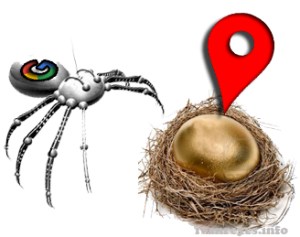Understanding Search Engines
The Internet is often just as puzzling as it is useful. After all, very few people actually know how exactly the Internet itself works, never mind how search engines like Google work. However, if you are a business or engaged in any kind of commercial endeavour on the Internet, a basic grasp of how search engines work is essential.
 Imagine for example, that you have a shop on a street in the real world. Now imagine that every single one of your potential customers walking up and down the street outside is deaf dumb and blind. In this case, you can go outside and shout about your next big deals and discounts, but no one is going to hear you.
Imagine for example, that you have a shop on a street in the real world. Now imagine that every single one of your potential customers walking up and down the street outside is deaf dumb and blind. In this case, you can go outside and shout about your next big deals and discounts, but no one is going to hear you.
Likewise, you can dress your shop-front up as eye catching as possible, but no one is ever actually going to see it. How then, are people ever going to find out about all the great things you do?
Sound surreal? Well, when you have a website, this is a pretty good analogy for how the Internet works. You see, when people search for products and services, they don’t magically land on your website and start checking out what you can do. Rather, people depend on search engines to tell them where to visit.
What A Search Engine Actually Is
In fact, a search engine is quite a lot like a guide dog. All day everyday, virtual robots called spiders which are the eyes and ears of search engines, are busy visiting every website in the whole wide world. Learning everything they can about every website they visit, this information is then stored and indexed in something which Google calls a ‘knowledge vault.’ At the same time, search engines like Google then constantly attempt to match the query’s which people type into search boxes, with the information in their respective knowledge vaults.
 Let’s say for example, that you sell chickens which lay gold eggs and have a website all about them and how much you are willing to sell them for. In this case, when someone makes a web search for something like, “where can I buy chickens which lay golden eggs?” Google doesn’t direct them to the website of an accident and injury lawyer. Rather, Google directs that person to your website.
Let’s say for example, that you sell chickens which lay gold eggs and have a website all about them and how much you are willing to sell them for. In this case, when someone makes a web search for something like, “where can I buy chickens which lay golden eggs?” Google doesn’t direct them to the website of an accident and injury lawyer. Rather, Google directs that person to your website.
SEO
Sound simple? Well, things actually get a little bit more complicated. You see, websites have to make sure that Googles spiders can see what they are about. In this case, if you want to get traffic to your site, you need to use keywords in your meta tags and text, ones which match the search terms which people you want to visit your website usually type into Google.
In the case above, this would therefore be something like “golden egg laying chickens.” But what if there are several people selling golden egg laying chickens on the Internet?
In the later case, Google would get confused, but not if you provide more information for the spiders to read on your page, information such as your specific location and pricing etc. More importantly though, Google is a business itself and as such it tries to only direct people to websites which it can see have genuinely relevant and engaging content. In this case, Google and other search engines monitor things like how long people visit your website for and what they do there. In fact, search engines even measure how long your website takes to load and will rank sites lower in search results in response to poor load times.
But wait, it gets worse. Search engines also look at how many people have linked back to your website from another one in the past. ‘Backlinks’ after all, tell search engines like Google, that people seem to find your website interesting enough to recommenced to other people. At the same time, search engines like to see websites being regularly updated and inviting users to connect with them using social media.
The Perils of SEO

Does it all sound too much already. Well, the main thing is not to try and cheat. A lot of people for example, attempt to get to the top spot on Google and other search engines, by buying backlinks in their 10’s and 100’s, and/or by posting material on websites so full of keywords that to a human visitor such content rarely makes sense. This is known as ‘Black Hat SEO’.
Do such tactics work? Yes, but only in the short term. As soon after all as a search engine realises what you are doing, it will rank your website lower rather than higher in search results. Also, never try and rush the launch of a website. Sites with poor coding, sites which don’t display accurately on mobile devices and sites which offer in general poor visitor experiences, will never make it anywhere near the first page.
